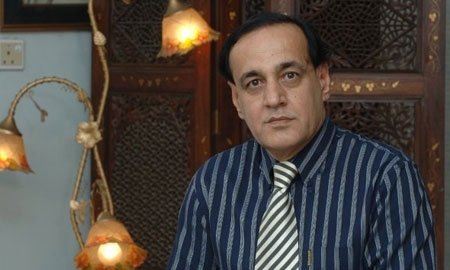Special Investment Facilitation Council (SIFC) initiated by COAS Gen Asim Munir and Prime Minister Shehbaz Sharif has changed Pakistan’s image. This single decision has changed the horizon within the last two years and now buyers are showing confidence in investing in Pakistan. The biggest of such kind is from the time-tested brotherly country of Saudi Arabia. A Saudi investor delegation arrived in Pakistan on a three-day visit headed by Saudi Minister of Investment Mr. Khalid Abdulaziz Al-Falih. The delegation included officials and companies from various sectors including energy, mining, minerals, agriculture, business, tourism, industry, etc. Business-to-business meetings of the Saudi delegation with Pakistani companies resulted in the signing of various pacts. Saudi Arabia and Pakistan signed 27 Memorandums of Understanding (MoUs) worth $2.2 billion, spanning key sectors such as industry, agriculture, IT, food, education, mining, health, petroleum, energy, and other areas of cooperation. Prime Minister Shehbaz Sharif, along with Saudi Investment Minister Khalid Bin Abdul Aziz Al Falih and Chief of Army Staff General Syed Asim Munir, witnessed the exchange of signed MoUs. The arrival of the delegation was an important milestone in Pakistan-Saudi trade relations. Saudi Arabia has shown full confidence in Pakistan’s economy, geographical position, natural resources, and capabilities and Pakistan is a preferred country for investment by the Saudi government and companies. The companies that came to Pakistan had a record of success. A 50-member delegation of investors from more than 30 Saudi companies in information technology, marine, mining, oil and gas, pharmaceuticals, and aviation arrived in Islamabad. Pakistan has also recently formed SIFC to facilitate investment from Gulf countries to promote foreign investment and provide facilities to investors. According to official data, about 2.5 million Pakistanis are in Saudi Arabia for employment, who send billions of dollars every year as foreign exchange to the country, which has a key position in Pakistan’s economy. In recent months, Saudi Arabia and Pakistan worked rapidly on bilateral trade promotion and investment agreements. At the beginning of this year, the Crown Prince of Saudi Arabia, Muhammad bin Salman had also announced an investment package of five billion dollars for Pakistan. Pakistan is keen to collaborate with its regional allies in trade, defense, energy, and other sectors to overcome the prolonged economic crisis. Instead of seeking aid from Saudi Arabia, Pakistan made a big decision to trade with it. Trade relations between Pakistan and Saudi Arabia seem to be moving towards a new milestone, where a stronger investment-based relationship will develop. Sources in the Ministry of Finance claim that by 2027, the total Saudi investment is expected to be more than 5 billion dollars. Finance Ministry confirms that frameworks have been prepared for investment agreements with Saudi Arabia and the total investment will be more than 5 billion dollars by 2027. Saudi private sector will invest about 1 billion dollars in Pakistan and then the private sector will increase the volume of investment by appointing its local representatives in Pakistan. Pak-Saudi relationship is entering into a bold and comprehensive relationship, aimed at reducing Pakistan’s dependence on loaning from the Kingdom and diversifying economic relations through developing private sector partnerships and finding opportunities in service sectors such as vocational education, health, infrastructure, recreation, and tourism. Crown Prince Mohammed bin Salman’s plan represents a significant pivot towards more diversified and sustainable relations with Pakistan, catering to the demands of the future, which will benefit both countries. However, this new outlook needs very responsible conduct from Pakistan’s private as well as public sectors because both sectors have to enhance their capacity to align with the demands of Saudi investors who deal at a global level. Any mishandling of greater opportunities would be disastrous for Pakistan.








